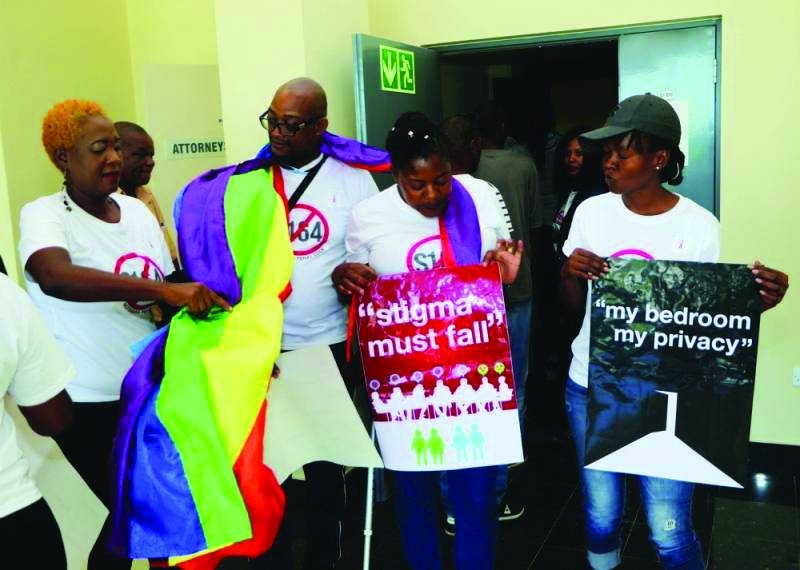Gay man 'forbidden' to cross-dress at work
Nnasaretha Kgamanyane | Tuesday May 23, 2023 15:02


She shared her experience as a man who identifies as gay at a commemoration of the International Day Against Homophobia, Transphobia, and Bi-Phobia event in Gaborone recently.
Maoto would like to wear a dress and other female clothes that she feels comfortable in. She, however, cannot do that as it is a taboo for a ‘man’ to wear women’s clothes.
Even though government has done well by decriminalising same-sex relationships, it is evident that there is still a long way to go for cultural leaders, opines Maoto. The way things still are, Maoto lives in a culture that still fails to recognise the lesbian, gay, bisexual, transgender, queer and other (LGBTQI+) community. “In Setswana culture, being an LGBTQI+ is an abomination.
There is nothing done regarding recognising the community. If you are a man you are a man and likewise with women. I cannot dress the way I want. “I have to dress like a man. It’s not like I am coping with the whole set up but since I need my job for survival, I have to adjust. Imagine that I also beat men who are tried for crimes and have to whip them on their bare buttocks which is also difficult for me but I have to do it since it is my job,” she said.
Other members of the community pointed out that the Setswana culture fuelled rejection and discrimination from not only traditional leaders and religious leaders but also the community at large.
They pointed out that even though the government did well by decriminalising homosexuality, it had a long way to go to fight stereotypes and discrimination in the community against sex minority groups and sex workers. There was also a play from the community about how it is difficult for them to freely express their sexuality as both their culture and community and the pain of not being themselves. They fear discrimination, rejection, and being violated for being themselves.
For her part, a legal and human rights officer at National AIDS and Health Promotion Agency (NAHPA), Diana Meswele said during a panel discussion that government recognised partnerships and opened spaces for them. She explained that the Constitution of Botswana under sections 164, 165, and 167 of the Penal Code criminalised same-sex sexual conduct. It also discriminated against the LGBTQI+ community, sex workers, and illegal immigrants. Those sections prohibited anal sex and on June 11, 2019, the High Court declared that sections 164 and 167 of the Penal Code violated the rights to liberty, dignity, privacy, and freedom from discrimination in the Constitution.
She said through NAHPA and other relevant stakeholders’ partnerships, they give a voice to the communities and continue engaging them through their civil societies. She said they came up with strategies giving agency to the community and key populations. “The following are the strategies we have been working on towards fighting discrimination against the community; we have been talking about issues of removing barriers to HIV, working with community networks, supporting having safe spaces, and training health workers through sex workers networks, men who have sex with men (MSM). We educate health workers to be sensitive when giving health services.
We are targeting those who are left behind to give them services that are customised for them,” she said. She added that they were also trying to make their public health sensitive. Even though all those strategies are said to be works in progress, she believed that with support from civil societies, they would win. *Not her real name.
